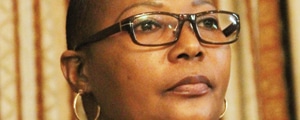
THE just-ended 33rd Sadc summit for heads of state and government in Lilongwe, Malawi, has once again proved the regional grouping has been reduced to a club which aims to protect each other’s legacies at the expense of solving problems bedevelling the bloc.
Report by Elias Mambo in Malawi
The regional heads of states have been meeting throughout the year, producing communique after communique and coming up with so many resolutions aimed at ending crisises in the region’s troubled spots like Zimbabwe, Madagascar and the DRC — yet delivered little.
For Zimbabweans, the Angola summit in June 2012 promised so much in solving long running political crises yet a communiqué released at the end did not reflect much progress.
Instead the summit only re-affirmed its decision of the (June) extraordinary summit urging Zimbabwean President Robert Mugabe and Prime Minister Morgan Tsvangirai to expedite the implementation of reforms, but did not discuss ways of ending a dispute over the timing of fresh elections.
However, for starters, elections came and went in Zimbabwe, with Mugabe controversially winning amid outcries of election rigging and the outside hand of an Israeli security company, Nikuv, being blamed for tampering with the voters’ roll to give Mugabe an outright win of 61%.
Analysts who described the Luanda summit as a make-or-break meeting, especially for Zimbabwe after much promise from South African President Jacob Zuma’s mediation efforts, were left baffled by this weekend’s events where Sadc went on to reward Mugabe with a deputy chairperson’s position.
Lobbyists from across the Southern Africa region who were detained in Lilongwe ahead of the summit criticised the regional body saying it was not yet ready to tackle the region’s problems.
- Chamisa under fire over US$120K donation
- Mavhunga puts DeMbare into Chibuku quarterfinals
- Pension funds bet on Cabora Bassa oilfields
- Councils defy govt fire tender directive
Keep Reading
Wisdom Chimwe, a Malawian political analyst, said the just-ended Sadc summit proved the regional group has been turned into a club of African leaders.
“The summit has proved African leaders in the region have turned this grouping into a club where they seek to protect each other’s legacies at the expense of the people,” Chimwe said.
“After all the irregularities that characterised Zimbabwe’s election, this bunch of leaders goes on to reward Mugabe for stealing an election. We are headed for more disaster as whoever steals an election will be protected as long as he is a bona fide member of the club.”
The endorsement of Zimbabwe’s disputed election has also been described as an icing on the cake of chaos that awaits the regional bloc.
“We are now sure that Africa has been thrown back into those times of the late Malawian leader Kamuzu Banda who could commit gross human rights abuses with the blessings of other African leaders,” Chimwe said.
Tsvangirai dispatched his vice-president, outgoing Deputy Prime Minister Thokozani Khupe, to meet with Sadc leaders and furnish them with rigging evidence and to ask Sadc not to endorse the election, and seek a rerun. In an interview with NewsDay, Khupe said she met with Malawian president and new Sadc chairperson Joyce Banda who said the matter would be dealt with.
“I presented our position to the incoming Sadc chairperson Malawian President Joyce Banda who assured me that the matter would be dealt with and a lasting solution would be found during the summit,” Khupe said.
However, not much was said on Zimbabwe since all the heads of states fell over each other to congratulate Mugabe for holding “peaceful and free elections” with Banda going further to congratulate Zanu PF for winning resoundingly.
Informed sources said the issue of Zimbabwe did not take more than 10 minutes during the closed door sessions since everyone was satisfied.
“For Zimbabwe, it was president after president showering praises on Mugabe for holding an election peacefully,” said the source.
After many years of grilling and humiliation at Sadc heads of state and government meetings for systematic human rights abuses and undemocratic practices that threatened regional stability, the summit awarded Mugabe with legitimacy despite the polls being marred by irregularities.
Zambia-based political analyst Rueben Chela said the behaviour of the Sadc region leaders had brought back the time when an African leader could afford to kill his people without anyone questioning.
“We are back to that time when a stolen election in an African state, with a few hundred dead, would hardly raise eyebrows let alone be condemned by leaders of neighbouring countries,” Chela said.
“In the days of Zaire’s Mobutu Sese Seko and Uganda’s Idi Amin, mass murder was more the rule than the exception; so it was in Rwanda and, more recently, in Congo and Sudan. Throughout it all, most African leaders kept carefully quiet, loathing to publicly criticise their colleagues, so is the case now with Zimbabwe,” he said.







